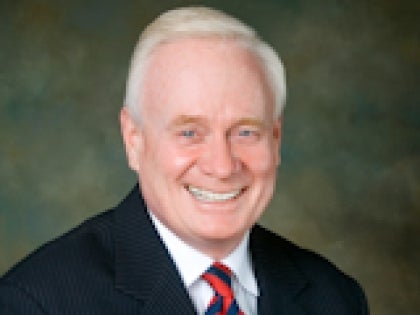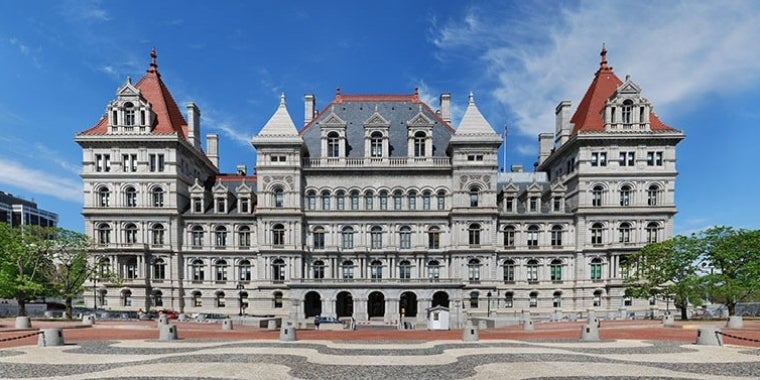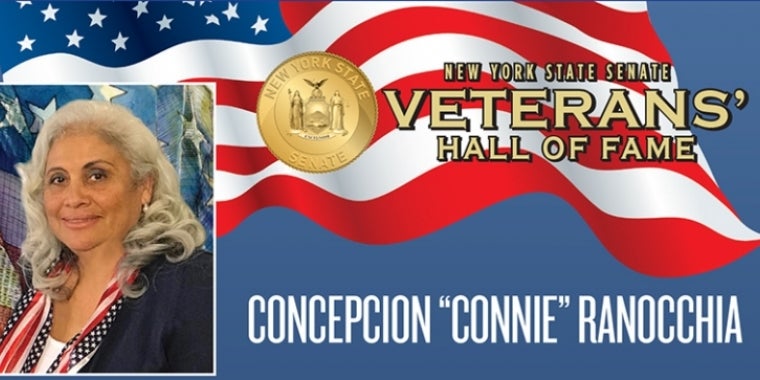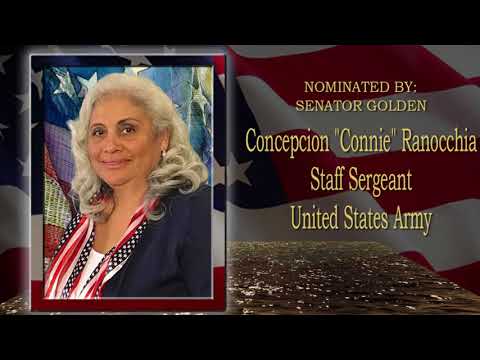
As Baby Boomers Retire, Legislature To Launch “Experience Wave”
Albany, NY—Assemblyman Steve Englebright and Senator Martin Golden today announced that New York will be the first state in the nation to introduce a package of bills to establish the infrastructure needed to keep older Americans engaged in the workplace and civic life beyond traditional retirement age. Designed to address the needs of an aging workforce, this legislation will remove barriers faced by older workers and the employers who need their skills, facilitate older worker training, and encourage older New Yorkers to engage in charitable services. These seven bills comprise a legislative package that other states can adapt for their own workforces.
“I am pleased to introduce this package of legislation with Senator Golden to jump start what is a very important process of addressing and planning for what the retirement of the baby boomers will mean to New York’s labor force.” said Assemblyman Steven Englebright. “The retirement of the baby boomers will place tremendous demands on businesses who will require a source of labor to fill retirement vacancies. Older adults who wish to stay at their jobs or be retrained for new jobs or second careers will challenge businesses and the state to adapt to these demographic changes. This package of bills puts this important issue on the map.”
“Last year, the first of the baby boom generation turned 60,” said Senate Aging Committee Chairman Marty Golden. “Even though many ‘officially’ retire at 65, the age that people stop working is no longer predictable. With this legislative package, New York will become a leader in planning for the demographic sea change by creating an environment that utilizes the expertise, experience, and knowledge that older workers possess. Miami Beach is a great place to visit – especially now – but most of us would all go crazy if all we had to do was sit on the sand and bake. If people stay healthy as they age and can still hold down a job, society should develop options for us and take advantage of our experience. Finally, we’re seeing some answers to our needs.”
Baby boomers, or people currently in mid life, represent over a quarter of the U.S population. Many aging baby boomers plan to continue working beyond age 65—some because they want to; others because they have to. Unfortunately, legal, financial, and institutional barriers inhibit older Americans’ pursuit of continued employment, education, or volunteer opportunities.
Initiatives that these bills would establish include:
· Mature Worker Task Force (A5565/S3058), which would create a 19-member task force in the State Office for the Aging to identify and address legal provisions that may limit opportunities for mature workers; identify best practices in the private sector for hiring, retaining and retraining mature workers; serve as a clearinghouse for such information; and assess the effectiveness and cost of programs that the state has implemented to hire, retain and retrain mature workers.
· Senior Volunteer / Real Property Tax (RPT) Abatement (A947-A), which would provide local governments the option of offering a RPT exemption for home owners who participate in a volunteer program and whose income does not exceed the median income for the county.
· Mature Worker Employment Training Program (A5566/S3060), which would provide resources to employment training service providers selected through a competitive process.
· Mature Worker Business Initiative (A5567/S3061), which would develop protocols for certifying businesses as “older-worker-friendly” and implement a marketing and outreach plan for encouraging the participation of businesses in this program.
· Centers for Lifelong Learning (A5568/S3062), to be located at community and four-year colleges, that would focus on the educational needs of adults 50 years of age or older who are seeking to pursue meaningful work.
· Intergenerational Mentoring (A5564/S3059), which would offer adults 55 years of age and older training and placement in tutoring, mentoring, and other educational support positions for youth.
· Adding two representatives to the workforce investment board for the purpose of taking into account the challenges older workers face (A3234/S948).
· Two additional bills would allow adults 60 years of age or older to take State University of New York (SUNY) courses for credit without tuition (A4820/S2510) and to also audit City University of New York (CUNY) courses (A881).
“Since their earlier years, baby boomers have been a defining generation in America—as they age, they are redefining the idea of retirement,” said former U.S. Senator Harris Wofford, co-founder of the Peace Corps. “With this legislative package, New York will become a leader in planning for the demographic sea change. New York can tap the experience and knowledge of older workers to help meet our communities’ needs.”
"Older workers play a critical and growing role across the nation. In fact, by 2020 they'll make up nearly 45% of the workforce in New York State alone," said Lois Aronstein, AARP New York State Director. "AARP commends Senator Golden and Assemblyman Englebright for introducing this legislative package, which not only addresses some of the barriers facing older workers, but also makes it easier for them to give back to their communities through volunteer work."
“New York State is rich in natural resources; none is richer than our senior citizens,” said Paul Widzowski, Executive Director of the New York StateWide Senior Action Council. “Older adults offer a deep pool of experience, wisdom and energy to assist industry, education, social and volunteer endeavors. Mining the gold in the hearts and minds of senior citizens is an idea whose time has come. Our senior citizens have been labeled correctly ‘The Greatest Generation.’ In this critical time for rebuilding the Empire State’s economy and future, all New Yorkers, however young and inexperienced can benefit from the wisdom of our elders.”
“As president and CEO of the Community Service Society, I represent the organization where the original RSVP program was founded and flourishes,” said David R. Jones. “CSS has a long history of engaging older adults in volunteer services. Although it has been replicated across the country and abroad, our RSVP program is unique in its size, its longevity, and its engagement of people of color. We cannot lose sight of the fact that volunteer programs must engage not only the well-educated and well-to-do. One of our priorities should be engaging older adults at the lower income level. We need to create incentive programs that are appropriate for older adults, ones that combine service with skills acquisition. And it is crucial that these programs include stipends that allow people of limited economic means the opportunity to participate. They are a critical factor in community stability and revitalization.”
“I am pleased to introduce this package of legislation with Senator Golden to jump start what is a very important process of addressing and planning for what the retirement of the baby boomers will mean to New York’s labor force.” said Assemblyman Steven Englebright. “The retirement of the baby boomers will place tremendous demands on businesses who will require a source of labor to fill retirement vacancies. Older adults who wish to stay at their jobs or be retrained for new jobs or second careers will challenge businesses and the state to adapt to these demographic changes. This package of bills puts this important issue on the map.”
“Last year, the first of the baby boom generation turned 60,” said Senate Aging Committee Chairman Marty Golden. “Even though many ‘officially’ retire at 65, the age that people stop working is no longer predictable. With this legislative package, New York will become a leader in planning for the demographic sea change by creating an environment that utilizes the expertise, experience, and knowledge that older workers possess. Miami Beach is a great place to visit – especially now – but most of us would all go crazy if all we had to do was sit on the sand and bake. If people stay healthy as they age and can still hold down a job, society should develop options for us and take advantage of our experience. Finally, we’re seeing some answers to our needs.”
Baby boomers, or people currently in mid life, represent over a quarter of the U.S population. Many aging baby boomers plan to continue working beyond age 65—some because they want to; others because they have to. Unfortunately, legal, financial, and institutional barriers inhibit older Americans’ pursuit of continued employment, education, or volunteer opportunities.
Initiatives that these bills would establish include:
· Mature Worker Task Force (A5565/S3058), which would create a 19-member task force in the State Office for the Aging to identify and address legal provisions that may limit opportunities for mature workers; identify best practices in the private sector for hiring, retaining and retraining mature workers; serve as a clearinghouse for such information; and assess the effectiveness and cost of programs that the state has implemented to hire, retain and retrain mature workers.
· Senior Volunteer / Real Property Tax (RPT) Abatement (A947-A), which would provide local governments the option of offering a RPT exemption for home owners who participate in a volunteer program and whose income does not exceed the median income for the county.
· Mature Worker Employment Training Program (A5566/S3060), which would provide resources to employment training service providers selected through a competitive process.
· Mature Worker Business Initiative (A5567/S3061), which would develop protocols for certifying businesses as “older-worker-friendly” and implement a marketing and outreach plan for encouraging the participation of businesses in this program.
· Centers for Lifelong Learning (A5568/S3062), to be located at community and four-year colleges, that would focus on the educational needs of adults 50 years of age or older who are seeking to pursue meaningful work.
· Intergenerational Mentoring (A5564/S3059), which would offer adults 55 years of age and older training and placement in tutoring, mentoring, and other educational support positions for youth.
· Adding two representatives to the workforce investment board for the purpose of taking into account the challenges older workers face (A3234/S948).
· Two additional bills would allow adults 60 years of age or older to take State University of New York (SUNY) courses for credit without tuition (A4820/S2510) and to also audit City University of New York (CUNY) courses (A881).
“Since their earlier years, baby boomers have been a defining generation in America—as they age, they are redefining the idea of retirement,” said former U.S. Senator Harris Wofford, co-founder of the Peace Corps. “With this legislative package, New York will become a leader in planning for the demographic sea change. New York can tap the experience and knowledge of older workers to help meet our communities’ needs.”
"Older workers play a critical and growing role across the nation. In fact, by 2020 they'll make up nearly 45% of the workforce in New York State alone," said Lois Aronstein, AARP New York State Director. "AARP commends Senator Golden and Assemblyman Englebright for introducing this legislative package, which not only addresses some of the barriers facing older workers, but also makes it easier for them to give back to their communities through volunteer work."
“New York State is rich in natural resources; none is richer than our senior citizens,” said Paul Widzowski, Executive Director of the New York StateWide Senior Action Council. “Older adults offer a deep pool of experience, wisdom and energy to assist industry, education, social and volunteer endeavors. Mining the gold in the hearts and minds of senior citizens is an idea whose time has come. Our senior citizens have been labeled correctly ‘The Greatest Generation.’ In this critical time for rebuilding the Empire State’s economy and future, all New Yorkers, however young and inexperienced can benefit from the wisdom of our elders.”
“As president and CEO of the Community Service Society, I represent the organization where the original RSVP program was founded and flourishes,” said David R. Jones. “CSS has a long history of engaging older adults in volunteer services. Although it has been replicated across the country and abroad, our RSVP program is unique in its size, its longevity, and its engagement of people of color. We cannot lose sight of the fact that volunteer programs must engage not only the well-educated and well-to-do. One of our priorities should be engaging older adults at the lower income level. We need to create incentive programs that are appropriate for older adults, ones that combine service with skills acquisition. And it is crucial that these programs include stipends that allow people of limited economic means the opportunity to participate. They are a critical factor in community stability and revitalization.”
# # #
Turning 65 in 2007:
Michael Bloomberg, Feb. 14
Phil Esposito, Feb. 20
Aretha Franklin, March 25
Erica Jong, March 26
Barbra Streisand, April 24
Paul McCartney, June 18
Harrison Ford, July 13
Isaac Hayes, Aug. 20
Annette Funicello, Oct. 22
Martin Scorsese, Nov. 17
Calvin Klein, Nov. 19
Manolo Blahnik, Nov. 27
Phil Esposito, Feb. 20
Aretha Franklin, March 25
Erica Jong, March 26
Barbra Streisand, April 24
Paul McCartney, June 18
Harrison Ford, July 13
Isaac Hayes, Aug. 20
Annette Funicello, Oct. 22
Martin Scorsese, Nov. 17
Calvin Klein, Nov. 19
Manolo Blahnik, Nov. 27
(source: Newsday, Jan. 2007)



